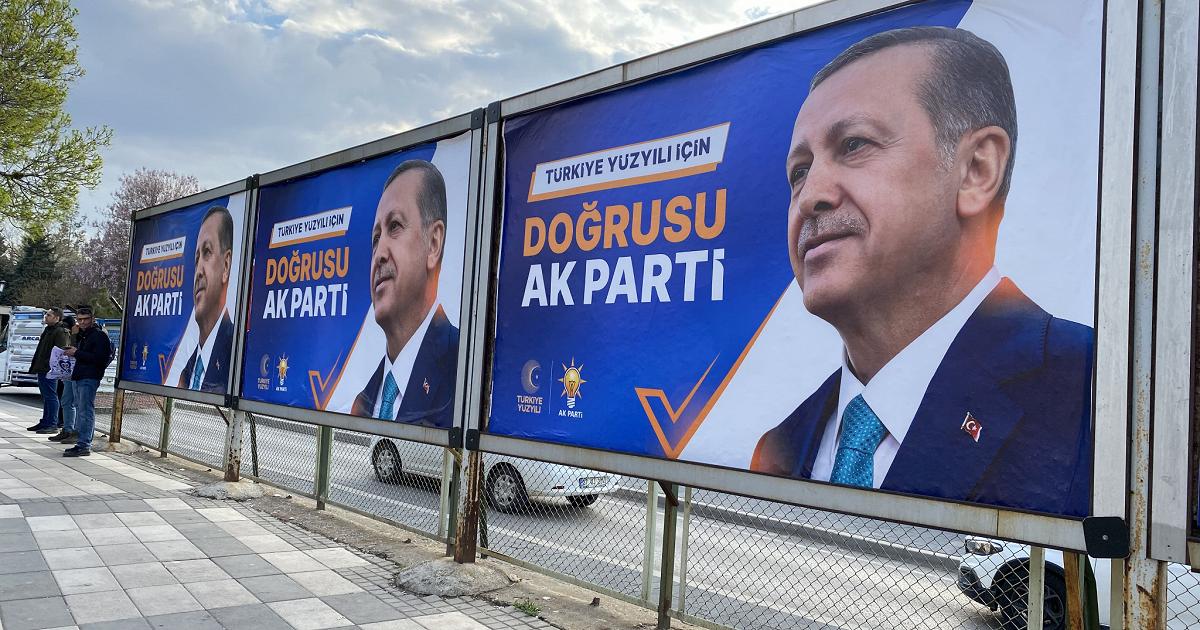Everything is ready for the political and presidential elections on Sunday 14 May in Turkey, in what many analysts consider the most difficult electoral round for the Turkish head of state and leader, Recep Tayyip Erdogan at the helm of the country for twenty years.
Leader of the ruling AKP party, he should have no problem keeping most of the seats, but there are some factors for which the conservative president known for having centralized much of the domestic and foreign policy in his hands, repressing the disposh and minorities, would appear weakened: runaway inflation at 50% or perhaps more, And the so-called "earthquake variant", the terrible earthquake that last February in addition to causing the death of over 50 thousand people and millions of damages and displaced people, hit the provicie strongholds of the sultan. According to the Supreme Electoral Council (YSK), at least one million voters in those areas affected by the earthquake will not be able to vote due to displacement.
The president considered an influential "mediator" between West and East, both in the war in Ukraine and with regard to food and energy issues, and with the European Union for the migration issue, has the merit of having brought Turkey to the center of the geopolitical chessboard, but this is not enough to silence his detractors. The opposition could after two decades attract a majority of voters: polls would give the lead Kemal Kilicdaroglu , 74-year-old leader of the Republican People's Party (CHP), candidate for president for the six-party coalition of the Alliance of the Nation a very heterogeneous front, composed of nationalists, liberals and social democrats.
The latest moves by the outgoing president to increase public salaries by 45%, to decrease credit rates and to have lowered the retirement age to try to recover consensus, seem not to have been enough. "We want Turkey to have a constitution developed by the will of the people. This will be the most important goal of our vision for Turkey's century. We will put this issue on the agenda after the elections," Erdogan said in Ankara today.
And, in any case, none of the four candidates, including Erdogan, seems to have a chance of exceeding 50% of the votes already in the first round. For this reason, it is very likely that we will go to the ballot after two weeks, that is, on May 28. That's where Kilicdaroglu might win. A new poll published by Politpro increases the gap between Kilicdaroglu who in the first round would get 48.9% while Erdogan would stop at 43.2%, confirming the runoff between the two rivals. Another dangerous variable for Erdogan is the vote of the Kurdish-Turks. Kilicdaroglu is credited with gaining the support of the second pro-Kurdish opposition party HDP. Some of its members are the subject of heavy trials for alleged affiliation with PKK militants whom the outgoing president considers bitter enemies.
The other presidential candidates are Muharrem Ince, the centrist leader of the Fatherland Party, the right-wing candidate Sinan Ogan. While 24 political parties and 151 independent candidates are vying for seats in the 600-member Turkish parliament. Turkey follows a system of proportional representation in which the number of seats a party obtains is directly proportional to the votes collected. The threshold has been lowered from 10% to 7%.
The turnout is given for high. Some analysts fear fraud. If Erdogan were to lose the percentages between the two candidates, they would still be small. Some NGOs such as Human Rights Watch and Article 19 denounce "the concern that the government exercises considerable control over the digital ecosystem by attempting to undermine the outcome of the elections".
"The elections will take place in an environment of strengthened centralized control and erosion of fundamental rights and the rule of law with the government wielding extraordinary power to muzzle the media and arrest or marginalize perceived critics and political opponents, before and during the elections," it said in a statement.
"I am sure they will be honest, transparent and guarantee the will of the Turkish people without any outside interference," Russian Foreign Minister Sergei Lavrov said at the summit with the foreign ministers of Iran, Syria and Turkey in Moscow.

